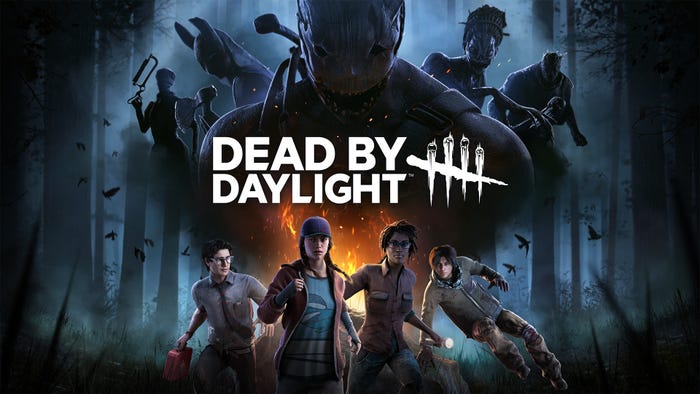
Featured Blog | This community-written post highlights the best of what the game industry has to offer. Read more like it on the Game Developer Blogs or learn how to Submit Your Own Blog Post
From loot tables to loot boxes, how do we manage an addiction to addiction?
There's a straight line between yesterday's MMO drop rates and today's loot boxes, but does that mean we have a gambling problem?

Back in my teenage World of Warcraft days, I spent a whole summer raiding the ruins of Zul'Gurub in search of two pieces of loot that would justify my DPS-Paladin build. While on a walk with my Mom one day, I tried to explain why I was so keen to get these particular items, and more importantly, why it was taking so many weeks to get them.
As I explained the concept of loot drops (something she'd once exclaimed "ew!" to while my brother and I were discussing the game, looting bodies is weird it turns out), she took a sideways look at me and laughed, saying "you do know that's how casinos keep people coming back, right?"
 If you're unfamiliar with how loot drops work in Warcraft raids, here's a quick primer. Every dungeon in the game contains a variety of boss units (like this jerk on the left) who are tied to a table of items that can appear after players kill them. This table resets with the instance, which depending on the dungeon, could happen on a daily or weekly basis, meaning it's not very likely that players will get all the loot they want from a dungeon on a given run.
If you're unfamiliar with how loot drops work in Warcraft raids, here's a quick primer. Every dungeon in the game contains a variety of boss units (like this jerk on the left) who are tied to a table of items that can appear after players kill them. This table resets with the instance, which depending on the dungeon, could happen on a daily or weekly basis, meaning it's not very likely that players will get all the loot they want from a dungeon on a given run.
Because of that artificial shortage, players in guilds would also compete for different kinds of loot, leading to the establishment of a "need versus greed" system on Blizzard's end, and artificial point systems to reward guild members on the player side. In my case, it meant I was hoarding my player-distributed points to ensure I could obtain these items if they dropped.
Except they didn't. Week after week, our lightning-fast Zul'Gurub runs would end in mild despair as Blizzard's servers ran the math and just didn't drop the items I wanted. It's not like they were exceptionally rare! I just had really bad luck. So back I went, again and again, until the sword and armor component I needed were mine.
At the time, my brother and I paid $15/month for our World of Warcraft subscriptions. My Mom, ever-worried about her children's social and job prospects, did her best to limit my playtime on weekends and evenings. Stories of internet addiction rehab centers and World of Warcraft-related deaths drove her to keep an eye on our play sessions, and she pushed us to try and find a balance between Warcraft and high school life.
When we kept that balance, we could keep playing the game. When we couldn't, there were consequences that prevented us from going on those hours-long raids.
In our case, my Mom was trying to help us manage our time. But now that online games are pushing to add more and more RNG-driven microtransactions (we'll call em loot boxes, though sometimes they're card packs, engrams, etc), I'm wondering how she would have felt if money were on the line?
(I called real quick to check. Turns out she would have tried to use these systems to teach us about saving money. Who knew?!)
The connection I'm trying to make here is that concerns over game addiction and overinvestment of time or money aren't new, and that we've had this conversation before about harmful game systems, whether it's too much time in World of Warcraft or too many quarters at the arcade machine. These systems flirt with gambling, but rush to avoid any of the stringent regulation that gambling invites.
In the past, the game industry has sidestepped these conversations by pointing out its inability to control its product once they're in the wild. You can't moderate a player's session length (except Blizzard totally did with the 'rest' system and bragged about it), and you can't control how many attempts they'll make at the X-Men arcade machine. But with loot boxes and "post-purchase interactions" in online titles, both premium and free, game companies want to incentivize more spending while claiming as much inability to act in moderation as in days of yore.
And to some extent that's...tolerable? Again, if a loot box isn't that dramatically different than a boss's loot table, there's still a fair exchange of money/fun being made with the player. The risk/reward, the thrill of a dice roll, and the mutual knowledge that the resulting item doesn't have any real-world value mean both mechanics serve a legitimate value. Humans like games of chance, they just really suck at managing the numbers associated with them.
The tipping point for how 'fair' that exchange feels seems more precarious than ever. If profit-hunting execs see players spend $15,000 on Mass Effect multiplayer card packs, there is ample incentive to string those purchases out as far as possible.
With more agency than ever over the player purchasing path, it seems that game developers would be best served by figuring out how to moderate these impulses and share that knowledge with other developers, before one wayward credit card spend brings the attention of regulators to bear. Today's Battlefront 2 'brouhaha' shows that publishers are capable of reacting to negative feedback, but do they have the capacity to trigger it in the first place?
I suppose in some sense, this is a plea for industry self-regulation, one of the longest-running economic arguments in modern capitalism. But without that, it's worth wondering if this indulgence will mimic my childhood experience with going too far for loot. If our industry isn't able to create its own balance, it may invite the intervention of an outside authority.
Read more about:
Featured BlogsAbout the Author
You May Also Like









.png?width=700&auto=webp&quality=80&disable=upscale)